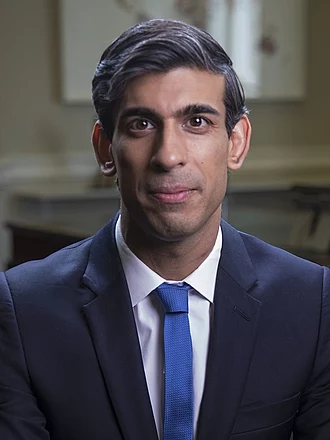Let me generalize the statement. "It is almost impossible for a Muslim to be a head of state in democracy in a multi-cultural country." Why?
In all democracies, whether Parliament or Presidential, the representative has to be elected twice before leading the nation. In a Presidential system like the US, party delegates vote for the Presidential candidate before the candidate seeks votes from the general public. In a Parliamentary system the order changes - he gets elected from his constituency and then gets elected by the party as a leader.
Take the case of a Muslim candidate in a Presidential system. For him to be an acceptable leader, the delegates must vote for him to be the Presidential candidate. As long as he maintains a Muslim identity, it is impossible to win the candidature from the party colleagues. So, he has to shed his identity and has to be seen as one among the people of that country - pretty difficult for a Muslim as his allegiance to his god supersedes his allegiance to his country. Even if he manages to win the candidature of his party colleagues, it is an uphill task to convince people in a multicultural society.
In the case of a Parliamentary system, he can probably win his constituency fairly easily if the majority of voters are Muslims. In that case, it is likely that his opponent may also be a Muslim. To impress Muslim voters, he has to play his Muslim card and not be a leader for all. He has to be a leader for Muslims first. Only then he can win his constituency of a few hundred thousand people. If he manages to win, it is highly likely that his colleague legislators would be suspicious of him because of the strong Muslim identity that he used to win. That would prevent him to be the leader of his party in the Parliament.
There is one case in which a Muslim can lead the government. If the party that won the majority has a super PM like Sonia Gandhi, a Muslim can hope to lead the government. The super PM decides on the leader of the party and everyone falls in line. This is unlikely to happen in matured democracies and matured democratic parties.
That is how India had Presidents like Fakruddin Ali Ahmed, Zakir Hussain, etc. Kalam was different as he rarely projected his Muslim identity. In fact, most Muslims do not see him as their man. His detachment from the Muslim community was the primary reason that made NDA consider him as their Presidential candidate.
Yes, there is a limit to which a Muslim politician can rise but that is constrained only by his identity and his people - not by the multicultural society he is part of.
If you are a Muslim in a multicultural society and have high political ambitions, try returning to the religion of your ancestors. It is not just politically rewarding but can also be good for you and the world.


No comments:
Post a Comment